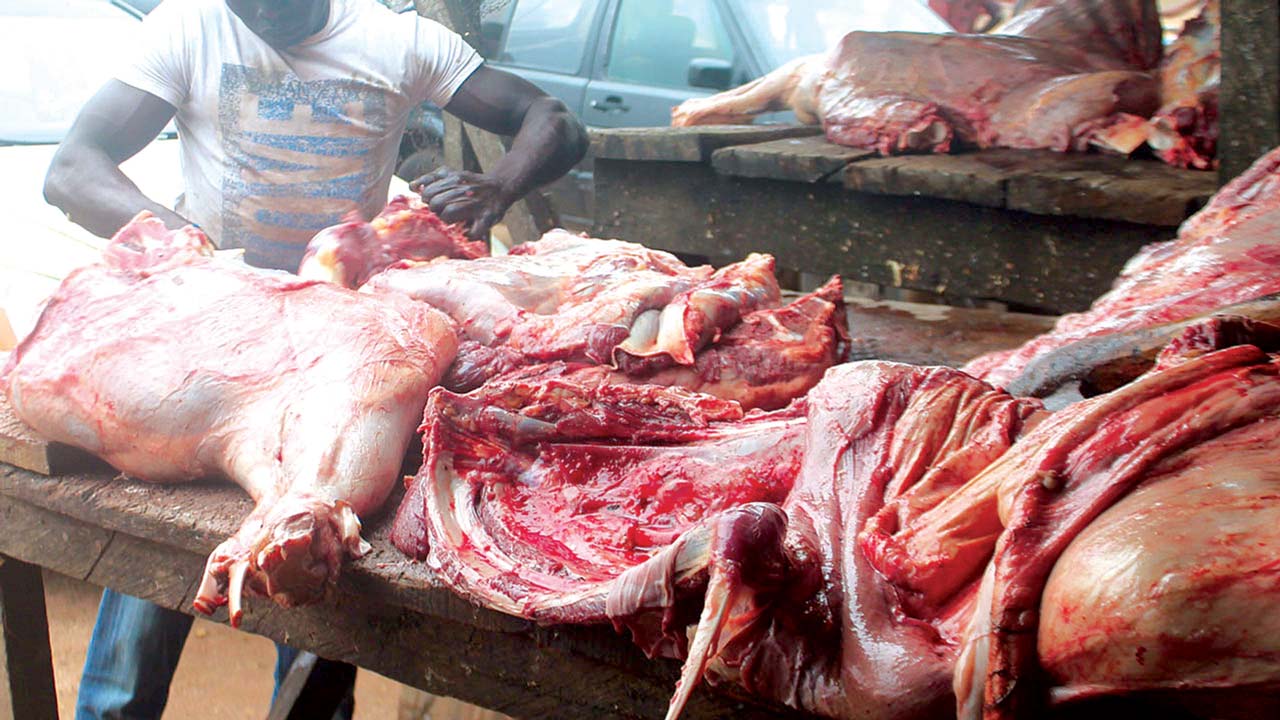
To eat beef in Nigeria today, the cow has to be somewhere not too far from you. There are many reasons why cattle herding moves across the country today – lack of pasture and water (1,000 cows need to drink roughly 20,000 gallons of water per day) as well as changing the climate that makes it difficult for stationary ranching. But it is also the case that cows need to move around so they can get to the place where they can be sold and converted to beef. Lagos is the largest beef market in the country and being highly urbanised further compounds this problem as it is difficult to graze cattle anywhere in the state.
This leads to further problems. If the cows have to be close to where they are going to be eaten, what is the best way of getting them there? The obvious way is to transport them. If the trains were working, that would be the way.
A couple of years ago, NIRSAL tried to do this but stopped after two attempts. The reason was not stated but I can hazard a guess.
The cow owners paid N90,000 for a coach carrying 30 cows. But for some weird reason, NIRSAL decided to pay N50,000 per cow that died during the trip. That is, just 2 cows needed to die in a coach for the enterprise to be wholly loss-making. This is not a stretch to imagine because cows lose a lot of weight during transportation. And that is the other problem.
Imagine you spend three years raising a cow for sale and then put it on a train or trailer to be transported down to Lagos from Kano for sale. You are quite literally losing money during the journey as every kilo of weight lost by the cow is a kilo of meat that you cannot sell. To make matters worse, a huge chunk of a cow is useless in that it cannot be sold. So paying to transport cows by train or trailer means that you are losing money as the cows lose weight and you’re also paying to transport all the parts that have no sale value.
When you add this to all the other problems facing Nigeria as a whole, chief of which is poverty, you can easily see why it makes sense to herd the cattle on foot across the country which allows the cows to eat ‘free food’ along the way to the market. Yes, the trekking makes the beef a lot harder and less nutritious when eaten but you only know that after you have bought and eaten it.
Assuming the Ruga plan was not suspended, would it have addressed this gross inefficiency hardcoded into the system? I doubt it. America used to have this problem as well where cowboys would herd thousands of cows for 1,000 miles from the US south to the north, trampling on farms and causing conflicts along the way. Ultimately the coming of railways and meat-packing companies solved the problem as we know it in Nigeria today.
In the Nigerian sense, part of the solution has to be to solve the problem that makes it possible to kill a cow in Kano and eat it in Lagos. This is by no means the only problem to solve but it’s an important one. It was from visiting a meatpacking factory that Henry Ford got his idea for a car factory. He found a system that was so industrialised with the division of labour such that even an unskilled labourer could do the job. So advanced was the system that as far back as the 19th century, cows were killed in America and eaten across the Atlantic in Britain.
One might not think of meat or cattle as a launchpad for industrialisation but it’s there if you look well enough. For a country like Nigeria that is desperate to create jobs and develop skills, meat processing – from killing the cow to turning it into beef that can be eaten all across the country and beyond, the current problem presents opportunities albeit ones that are a bit tricky to grasp.
Nevertheless, they are there. But one of the most depressing things about Nigeria is how the country always seems to be stuck at the lowest level of problems. Today, Nigeria is still stuck at the level of discussing where the cows will sleep and what they will eat, all done in an atmosphere of mutual suspicion, fear, and loathing.
Maybe someday the debate will advance further than this current level. Maybe.
[ad unit=2]






